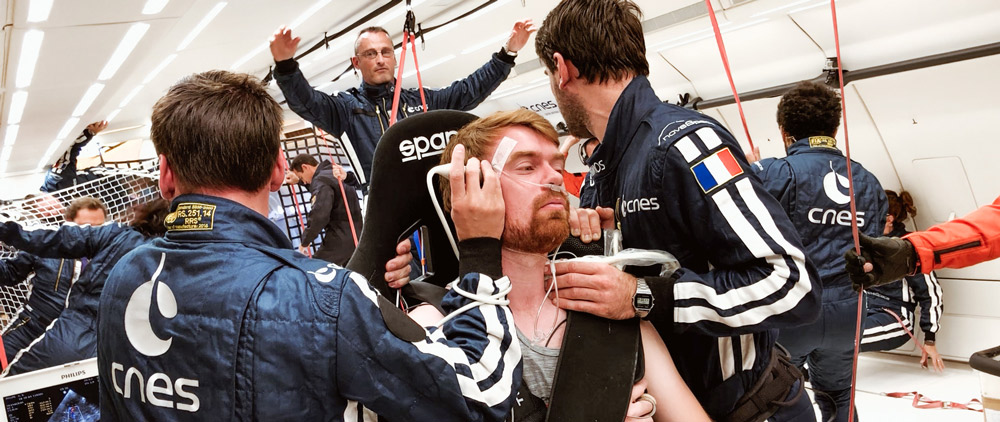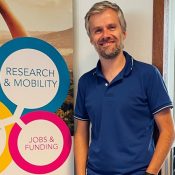
Erasmus Mundus Joint Master Degree on physiology and medicine of human in space and extreme environments

Academic cooperation
This SpaceMed programme results from a collaboration between the three partner research and educational institutions to award a joint degree:
- Charité University Hospital, Berlin, Germany,
- Jožef Stefan International Postgraduate School at the Institut Jožef Stefan, Ljubljana, Slovenia,
- Université de Caen Normandie, France.
Other partners (academic and research institutions, space agencies, and industrial partners), each with specific areas of expertise, are also involved in the programme definition and management, teaching, and hosting of students during internships.
Programme outlines
SpaceMed is a 2-year full-time European Master’s programme offering a unique integrated inter- and multidisciplinary study on the effects of extreme environments, particularly space flight, on humans. The curriculum places a strong emphasis on hands-on activities in state-of-the-art laboratories and on field studies, including space flight analogues (i.e., parabolic flights, Antarctic habitats, experimental bed rest studies, etc.), and extreme environments, such as those experienced at high altitude, underwater, and in hot and cold, dry and humid environments.
Programme structure
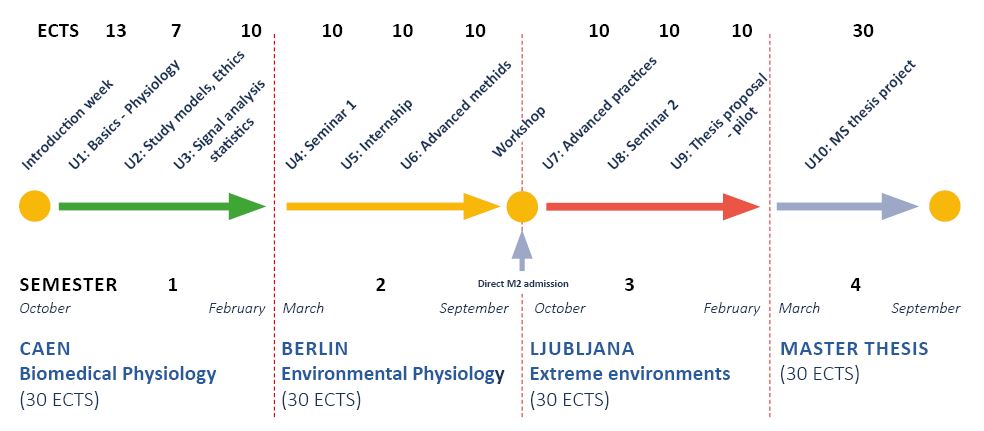
FRANCE
Biomedical Physiology – 30 ECTS
- Basic human physiology, with emphasis on extreme environments
- Hands on activities in research and clinical laboratories
- Practical demonstrations with associated partners (e.g., parabolic flight)
- Ethics in research
- Data analysis
- Statistical procedures
GERMANY
Environmental Physiology – 30 ECTS
Building on the lessons of the first semester, students will receive advanced knowledge in some specialised areas. They will also learn to use advanced measurement methods during their laboratory rotation. Finally, they will carry out a research project during a two-month internship.
SLOVENIA
Extreme environments – 30 ECTS
- Human habitats in extreme environments
- Spaceflight-associated musculoskeletal atrophy
- Spaceflight-associated cardiovascular deconditioning
- Circadian rhythms, sleep and nutrition
- Space Ergonomics, including human-robot interaction • Pilot studies (bedrest, countermeasures, hypoxic confinement, isolation etc.)
ANYWHERE
Master Thesis – 30 ECTS
Students will complete a six-month research project or industrial placement. The culmination of all semesters will lead to the awarding of a Master Thesis.
Programme factsheet
A dedicated website for applications will open mid-December. In the meantime, you can request information by email at SpaceMed@unicaen.fr
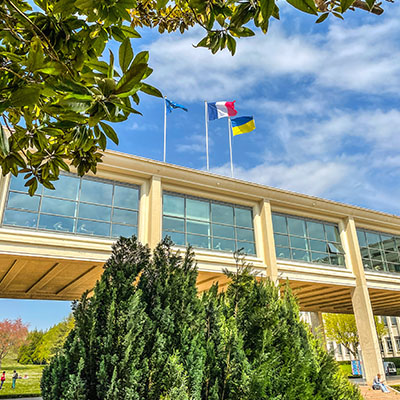

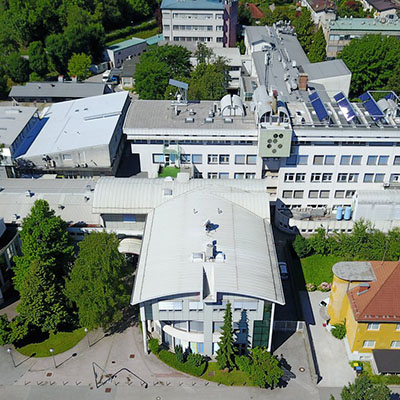
2 years (full-time) – 120 ECTS
Either a Bachelor’s degree in natural sciences or kinesiology (180 ECTS), a Master degree
in engineering, or a medical degree.
A minimum level of English language proficiency equivalent to B2 according to the levels
defined by the Common European Framework of Reference for Languages (CEFR).


